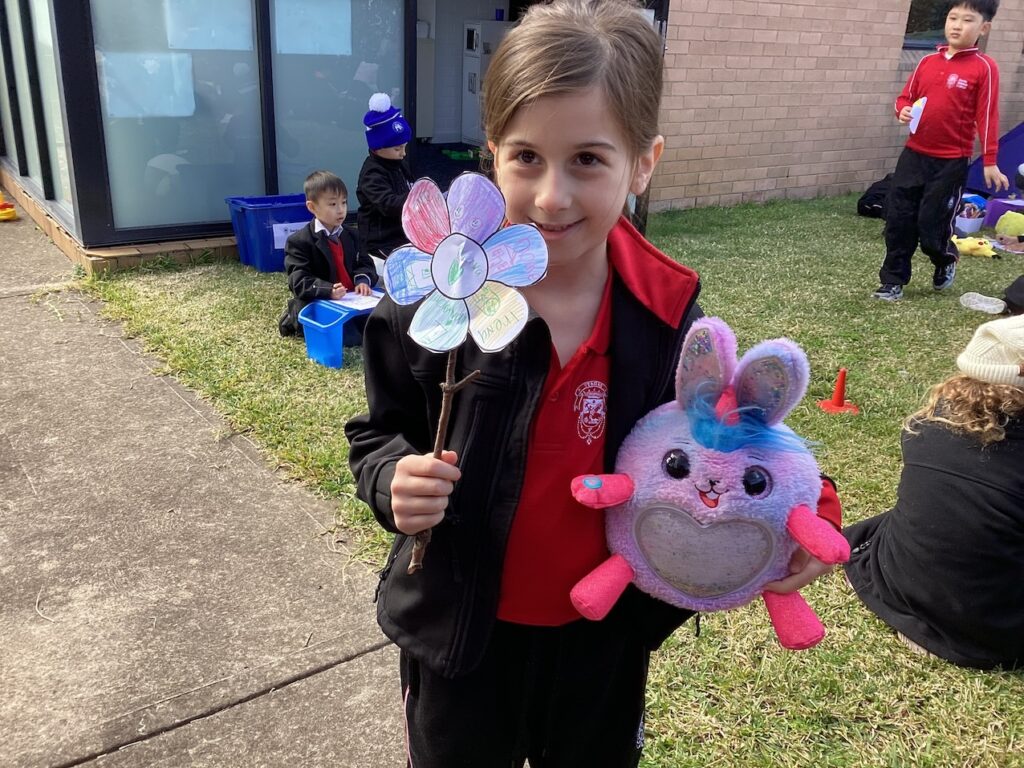From the Assistant Head of Primary
Pastoral update
With the start of a new term and the transition from Semester 1 to Semester 2, our weekly Pastoral Focuses have moved inwards, with students exploring the concepts of Gratitude, Self-Awareness and Emotional Literacy.
Gratitude
According to Harvard Medical School and contemporary research in the field of positive psychology, there is a strong correlation between gratitude, and improved happiness and wellbeing. Expressing and feeling gratitude helps people experience more positive emotions, savour enjoyable experiences, cope with adversity, develop and maintain strong friendships and improve their health. Helping students express and share their gratitude for their friends therefore, has the double benefit of helping students strengthen their friendships, whilst simultaneously helping them to feel good about themselves.
To bring this theme to life, students were asked to think about the qualities of friends and friendships that they are grateful for. Some classes created a classroom ‘Gratitude Garden’ with each flower representing a special friend for whom the students are grateful and each petal representing reasons why they are grateful for having their friendship. Other classes wrote thank you notes to special friends, expressing gratitude and appreciation for the joy that friend brings to their life. All activities helped students reflect on the importance of feeling and expressing gratitude in friendships.





Self-awareness and emotional literacy
The CASEL Framework defines self-awareness as the ability to understand our emotions, feelings and thoughts, culture and values, and recognise the ways that these thoughts, feelings, values and emotions can influence our behaviour. Having self-awareness also includes the ability to recognise personal strengths and limitations.
We all have many different types of emotions, feelings and moods. Helping students become aware of their own emotions, by first noticing them, and then being able to name them, helps them develop emotional literacy. This process of noticing and naming emotions is the first step to being able to take actions to address and meet emotional needs. Emotional literacy development is critical in helping students take action to move forward when dealing with personal challenges or friendship issues. Moreover, ‘When we label our emotions accurately, we are more able to discern the precise cause of our feelings and take concrete steps forward’ (Dr Susan David).
Students explored this concept by making little feeling friends out of thumbprints (Kindergarten to Year 2) or using an emotions wheel to more precisely name their feelings and using the Looks Like, Feels Like, Sounds Like Thinking Routine to delve deeper into one emotion they were interested in exploring more deeply (Year 3 and Year 4).




Respect for our natural world and Science Week
With National Science Week just around the corner (10 to 18 August), our Pastoral, Religious and Curriculum learning areas took a harmonious intersection this week where students explored ways to respect our natural environment (Pastoral Focus), respond to Pope Francis’ call to ‘Care for our Common Home’ (Laudato Si) and respond to the 2024 National Science Week theme of Species Survival – More Than Just Sustainability (Curriculum Focus).
To bring the theme to life in classrooms, students explored the letter from Pope Francis to all peoples around the world, (Laudato Si), which connects environmental problems with technology, economic and social issues. Students considered ways they can live out the Laudato Si in their everyday lives such as keeping their classroom and playground clean, and minimising the amount of waste that ends up in landfills.
In future weeks, students will delve more deeply into this concept by looking ways to keep waste out of landfill by sending it to recycling, upcycling through organisations such as Terracycle or Recycle Smart or repurposing waste through places like Kimbriki Resource Recovery Centre.
Respect for our Natural Environment Photos



Curriculum update
Implementation of the new English and Maths Syllabus
As we move into the second semester, we continue to focus on building teacher capacity to improve teaching and learning outcomes for all students, with a particular focus on implementation of new English and Mathematics syllabuses. Teachers will continue to use grade planning and collaborative planning times to work collaboratively to streamline and strengthen teaching and learning in these curriculum areas. This includes devising learning experiences that cater for the needs of all students, making adjustments for students requiring additional support, offering extension opportunities and assessing student learning on an ongoing basis.
Public Speaking
This term, all students from Year 1 to Year 4 will have the opportunity to develop their oral language and communication skills through our Public Speaking program. Writing skills will also be developed and fine-tuned as they write their speeches during Literacy lessons. Students will present their speeches in front of class groups. The program will culminate with Public Speaking finals being presented to the wider school community.
Science labs and excursions
Grades visits to the Science Labs on the senior campus will also continue this term, with an incursion planned for our Year 4 students to the Labs later this month.
Students from Year 1 were delighted to learn about the past during their visit to Elizabeth Farm earlier this term. The excursion provided experiential learning that complimented their History unit, where they immersed themselves in life in the early 19th Century. Experiences included participating in children’s games, educational activities and domestic duties.
Lauren Petroni
Assistant Head of Primary P-4 and Curriculum Leader P-4